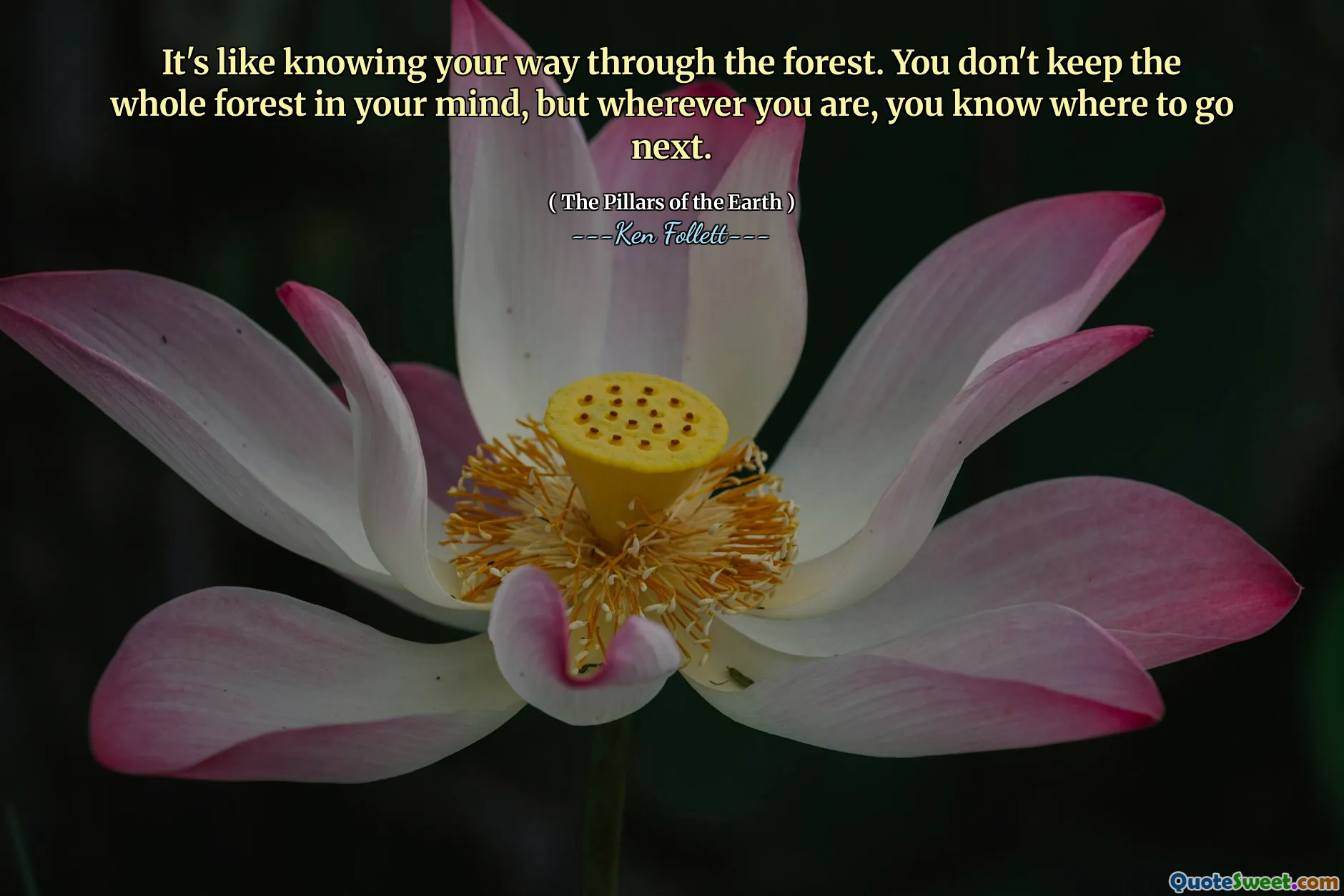
It's like knowing your way through the forest. You don't keep the whole forest in your mind, but wherever you are, you know where to go next.
This quote evokes a profound sense of navigation and understanding without the necessity of holding every detail in one's conscious mind. It suggests that mastery and familiarity come from internalized knowledge—perhaps patterns, instincts, or principles—that serve as a mental map. In life, much like traversing a forest, we often do not need to memorize every single path, tree, or specific landmark; instead, we develop a sense of direction based on experience and intuition. This approach allows us to adapt dynamically to new situations, trusting in our internalized cues to guide us forward, even when we lack complete information. It highlights the importance of focusing on key frameworks or guiding principles that can help us adapt as circumstances change, rather than feeling overwhelmed by the vastness or complexity of the entire system. Much like a seasoned navigator relies on known landmarks and subtle signs, we craft mental models that enable us to continue moving forward confidently. The metaphor also underscores the importance of being present in the moment and attentive to our surroundings, trusting that our subconscious has stored enough context to make informed decisions. This perspective is empowering because it emphasizes flexible mastery—knowing how to find our way even in unfamiliar territory—rather than rigid knowledge that may quickly become obsolete. In essence, it advocates for building mental maps imbued with insights and intuition, which serve us well on our journeys through the complex pathways of life.






